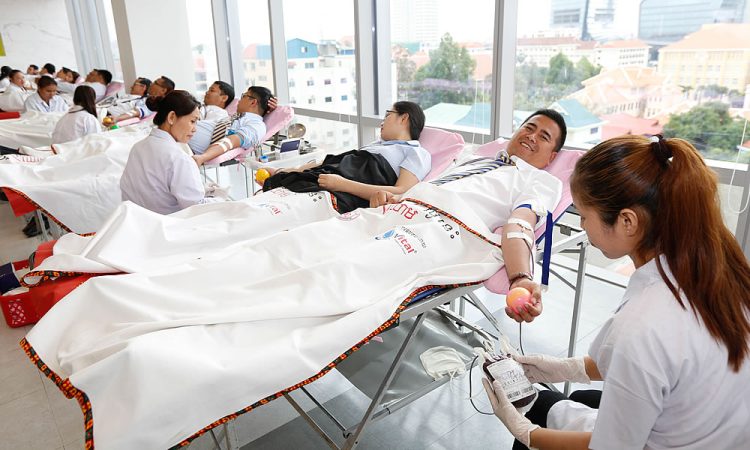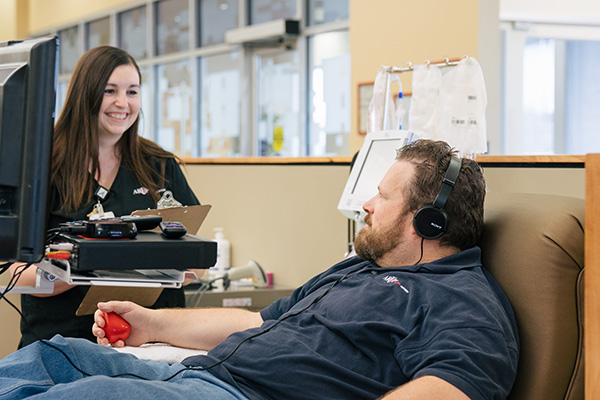Essential Tips and the Best Foods to Eat Before Plasma Donation

Preparing to donate plasma? What you eat beforehand can have a significant impact on both your experience and the quality of your donation. A healthy, balanced diet not only helps you feel more comfortable during the process but also ensures a successful and efficient donation. In this guide, we’ll explore essential tips and the best foods to eat before plasma donation—so you can feel confident, hydrated, and ready when the time comes.
The Importance of Nutrition in Plasma Donation
What is Plasma: The Lifesource of Your Blood
Plasma is the liquid portion of your blood, making up about 55% of its total volume. It’s primarily composed of water and serves as the transport medium for glucose, hormones, nutrients, enzymes, and waste products. Plasma also carries clotting factors and antibodies, making it a critical component of the immune system and overall health.
Because of its vital functions, plasma must be in good condition for donation. Proper nutrition plays a key role in keeping plasma healthy. Before donating, it’s important to understand how your diet directly influences your ability to give plasma safely and effectively.
Why Hydration Matters: Drinking Water to Boost Your Donation
Hydration is one of the most overlooked but essential parts of preparing for plasma donation. When you’re well-hydrated, your blood flows more easily and your plasma is thinner, which makes the donation process faster and smoother.
Dehydration, on the other hand, can lead to dizziness, fatigue, and difficulty during the procedure. It can also reduce the amount of plasma you’re able to donate. Experts recommend drinking at least 16 to 32 ounces of water or a non-caffeinated beverage in the hours before your appointment. The goal is to maintain a steady intake of fluids the day before and the day of your donation.
Key Nutrients to Focus On
Nutrient Absorption: Fueling Your Body for Success
Your body needs specific nutrients to maintain blood and plasma health. Iron, folate, vitamin B12, and vitamin C are among the most important nutrients when it comes to preparing for plasma donation. These help produce red blood cells and maintain plasma proteins, which are essential to the donation process.
- Iron helps your body produce hemoglobin, a protein that carries oxygen in your blood.
- Vitamin B12 supports red blood cell formation and neurological function.
- Folate (Vitamin B9) is crucial for DNA synthesis and cell growth.
- Vitamin C enhances iron absorption, especially from plant-based sources.
By eating a well-rounded diet with a variety of nutrient-dense foods, you’ll help your body stay in top shape before your plasma appointment.

Best Foods to Eat Before Plasma Donation
Building Your Blood Bank with Iron-Rich Foods
Iron is an essential mineral for anyone preparing to donate plasma. Without enough iron, you may feel fatigued and could even be turned away if your hemoglobin levels are too low. Red meat, poultry, and seafood offer the most bioavailable form of iron (heme iron), which is easier for your body to absorb.
For vegetarians and vegans, good sources of non-heme iron include:
- Lentils and beans
- Spinach and kale
- Tofu and tempeh
- Fortified cereals and breads
To increase absorption of non-heme iron, pair these foods with those high in vitamin C, like oranges, strawberries, bell peppers, or tomatoes.
A sample pre-donation meal could include grilled chicken with quinoa and steamed broccoli, or a black bean burrito with avocado and salsa. These meals provide a mix of iron, protein, and other supportive nutrients.
Protein-Rich Choices: Building a Plate to Donate
Protein is a building block for plasma proteins and helps your body repair tissues. Eating enough protein before donating plasma helps maintain strength, supports immune function, and aids recovery after the donation.
Top protein sources to include before donation:
- Eggs
- Lean meats like turkey, chicken, or beef
- Fish like salmon or tuna
- Dairy products like Greek yogurt, cheese, and milk
- Plant-based options like chickpeas, lentils, and tofu
A power-packed option could be a whole grain wrap filled with grilled turkey, spinach, and hummus. Or try a breakfast bowl with scrambled eggs, sweet potatoes, and avocado.
Incorporating the best foods to eat before plasma donation ensures that your body has the nutrients it needs to perform at its best.
The Role of Vitamins and Minerals
Micronutrients are often overshadowed by macronutrients like protein and carbs, but they are just as important—especially for blood and plasma health. Vitamins like B12 and folate are vital for red blood cell formation, while minerals like zinc and magnesium help with cellular function and recovery.
Include these food sources in your daily meals:
- Folate: leafy greens, citrus fruits, beans, and whole grains
- Vitamin B12: dairy, eggs, fish, and fortified cereals
- Zinc: meat, pumpkin seeds, cashews, and legumes
- Magnesium: spinach, almonds, bananas, and dark chocolate
The more balanced your intake of vitamins and minerals, the better your body will respond to the plasma donation process.
When and What to Eat Before Donating
Plan Your Meals: Timing is Everything
Meal timing is crucial. Aim to eat a balanced meal 2 to 3 hours before your plasma donation appointment. This gives your body time to digest and absorb the nutrients, providing steady energy throughout the process.
Your pre-donation meal should include:
- Complex carbs like brown rice, whole grain bread, or oats
- Lean protein like chicken, eggs, or beans
- Healthy fats like avocado or olive oil
- Hydrating fruits and vegetables like cucumbers, melons, and oranges
A hearty pre-donation breakfast could include oatmeal topped with almonds and blueberries, alongside a boiled egg and orange juice. This meal ticks all the boxes—protein, iron, vitamin C, and hydration.
Smart Snacks Before Donation
If you’re hungry closer to your appointment, opt for a light snack about 30–60 minutes beforehand. Examples include:
- A banana with peanut butter
- Greek yogurt with granola
- A small fruit smoothie with spinach and chia seeds
- Whole grain toast with avocado
These options keep your blood sugar stable and energy levels up, helping to reduce dizziness or fatigue during and after donation.
Sample Meals to Prepare
Here are a few meal ideas that feature the best foods to eat before plasma donation:
- Lentil and vegetable soup with a side of whole grain bread
- Turkey and avocado sandwich on whole wheat with a citrus fruit salad
- Chickpea and quinoa salad with spinach, cherry tomatoes, and tahini dressing
- Scrambled eggs with sautéed greens and whole grain toast
All of these meals are easy to digest, nutrient-dense, and will keep you feeling strong before your plasma appointment.
After You Donate: Recovery and Replenishment
Replenishing Electrolytes and Fluids
After your donation, your body enters a recovery phase and works to restore lost fluids and electrolytes. Make sure to drink water or electrolyte beverages such as:
- Coconut water
- Low-sugar sports drinks
- Herbal teas
- Broth-based soups
Eat foods high in potassium, sodium, and magnesium to balance fluids and support muscle function. Bananas, sweet potatoes, avocados, and leafy greens are excellent choices.
Managing Sweet Cravings
It’s not uncommon to crave sweets after donating plasma due to a dip in blood sugar. While candy is often offered at donation centers, healthier options like fruit, trail mix, or dark chocolate provide a better nutrient profile and sustained energy.
You can still enjoy a small treat—but pair it with protein or fiber to avoid a sugar crash.
Long-Term Plasma Health Through Diet
Donating plasma regularly means keeping your body in tip-top shape. Long-term health is about consistency. Continue to eat the best foods to eat before plasma donation as part of your daily routine.
Strive to:
- Eat iron-rich and protein-rich meals regularly
- Include a variety of fruits and vegetables
- Stay hydrated throughout the day
- Limit processed foods and added sugars
By maintaining good nutrition habits, you’ll not only feel better but also qualify for future donations and support others in need more effectively.








